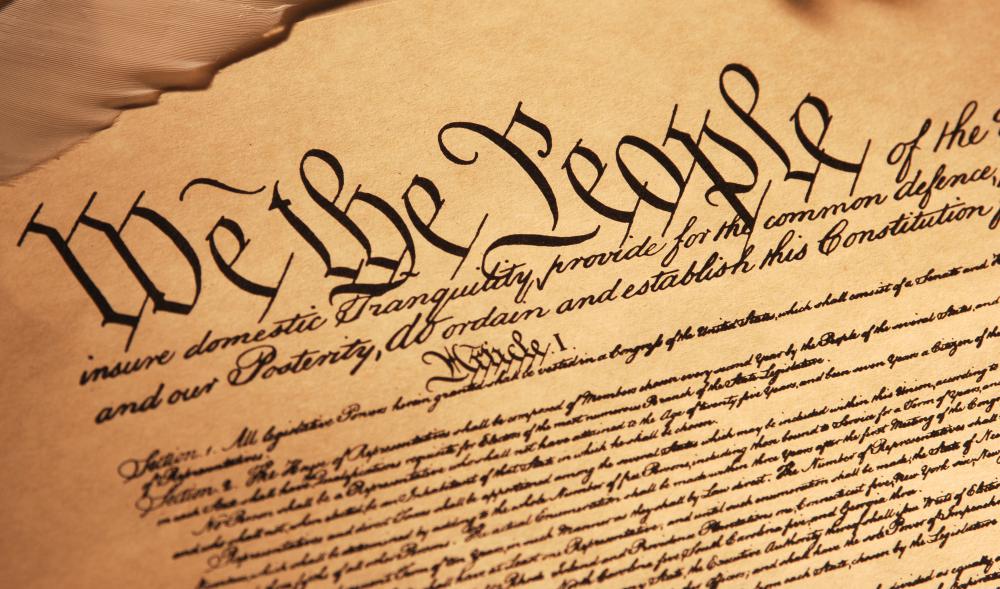At WiseGEEK, we're committed to delivering accurate, trustworthy information. Our expert-authored content is rigorously fact-checked and sourced from credible authorities. Discover how we uphold the highest standards in providing you with reliable knowledge.
Who Were the Anti-Federalists?
The Anti-Federalists were a political coalition formed after the Revolutionary War, during the early stages of the drafting of the United States Constitution. From 1787 to 1788, they argued against the ratification of the Constitution as written, believing that it gave too much centralized power to the federal government, which could eventually lead to a monarchy. The Anti-Federalists wanted individual states and private citizens to have more rights of their own, independent of the federal government. They were particularly opposed to the idea of a president, believing that Congress should be able to act on its own.
Prior to the drafting of the Constitution, the United States was governed by the articles contained in the Articles of Confederation. Both the Federalists and the Anti-Federalists realized that the document fell short of addressing all the issues and that another document outlining governmental powers was needed; however, it took the two parties almost an entire year to come together on what would become the Constitution of the United States. The Federalists wanted a stronger centralized government, believing it was necessary for the protection of the nation, while the Anti-Federalists feared governmental infringement.

One of the biggest problems that the Anti-Federalists had with the Constitution that was being proposed was that it did not contain a bill of rights. They believed that the document should clearly outline the individual liberties of citizens, and that it should contain safeguards that would ensure that government could not infringe on those liberties. Anti-Federalists argued that this bill of rights should be the basis of the entire constitution, and should supersede the powers of both state and federal governments.
During the period that the Constitution was being debated, members of both parties gave impassioned speeches, before both the Constitutional Congress and the public to try to win favor for their cause. Patrick Henry, of Virginia, was one of the most vocal and eloquent speakers advocating for individual and states' rights, and he is generally credited with being the leader of the Anti-Federalist movement. Other important leaders of the movement included Samuel Adams and James Monroe.
Finally, Patrick Henry and his group were able to convince the Federalists to incorporate their idea that individual liberties should be the basis of the Constitution. Together with the Federalists, they crafted amendments to the Constitution which became known as the Bill of Rights. This bill, ratified in 1791, grants United States citizens a total of ten inalienable rights that include the right to freedom of speech, freedom of religion, and the right to bear arms.
AS FEATURED ON:
AS FEATURED ON:











Discuss this Article
Post your comments